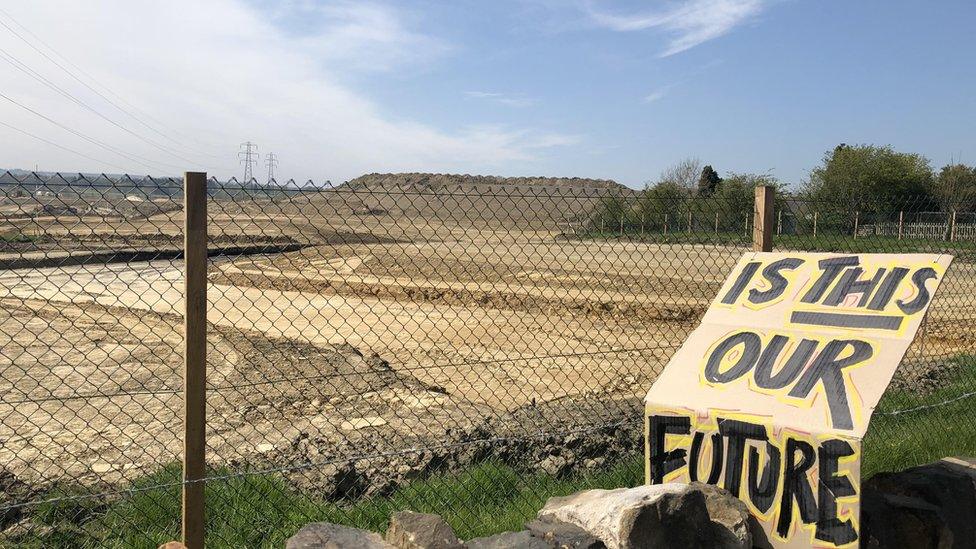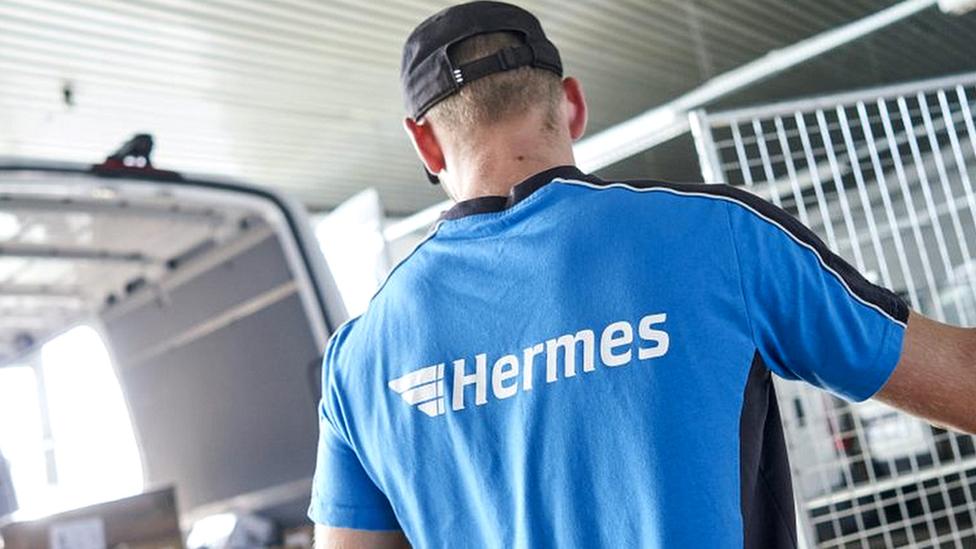Wildflowers and woodland plan for giant Hoyland Hermes hub
- Published

Residents have previously raised concerns about a loss of green space
Plans to surround a controversial Hermes hub with wildflowers, woodland and shrubs have been announced.
Some residents have said the 363,000 sq ft (33,724 sq m) site in Barnsley, the largest of its kind in Europe, would lead to a loss of green space.
Barnsley Council has now announced plans aimed at mitigating concerns and increasing biodiversity.
They said the plans would "recover and enhance" the site, which is currently under construction.
The depot - named Colossus - is expected to create 1,300 jobs, according to the courier service.
Overall the plans should result in a 10% gain in biodiversity, reports the Local Democracy Reporting Service.
Seven acres of land off-site is earmarked for "habitat creation", which will be monitored for a period of 33 years, the council said.
On site, a "network of green corridors" is planned around the commercial development plots, and plans are in place to plant native woodland, thicket and hedgerow planting and native species grassland, as well as the provision of bat and bird boxes.
Two off-site areas will make up the rest of the biodiversity gain - at the southern site boundary and Bell Ground Wood, and south-east of Darfield between the River Dearne and existing woodland around the disused railway corridor.
Robert Frost, from Barnsley Council, said: "The sites in the Hoyland Masterplan required major redevelopment to support jobs creation in the area, and we know this has an impact on the landscape during the first phases.
"In terms of replanting, this is a huge investment with hundreds of trees, hedgerows and wildflowers included.
"This was a key focus of the masterplan framework - making sure we could work with developers to provide woodlands and landscapes that would be re-established and thrive in the future.
"We know this is a long-term process, and plans will be carefully monitored, working with experts to create and support biodiversity across all sites."

Follow BBC Yorkshire on Facebook, external, Twitter, external and Instagram, external. Send your story ideas to yorkslincs.news@bbc.co.uk, external.
Related topics
- Published3 February 2020
